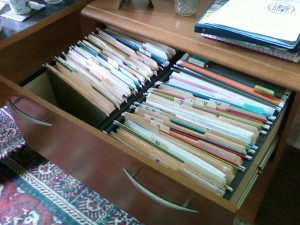 As Well as a Few Critiques
As Well as a Few Critiques
I admit I wasn't blogging in 2008. I considered the idea as a junior in college, and a friend even recommended that I call the blog, "Frog Blog." I didn't start blogging (for myself and for other sites) until 2010 and I've been blogging just about every day ever since.. Even with nearly four years of blogging experience, I learned a few great tips from "Blogging Heroes." But, there are a few changes between then and now, changes that weren't applicable even between 2008 and 2010. Here are X of the major differences between 2008 and 2014, as analyzed from "Blogging Heroes."
Monetization Through Advertising is On Its Way Out
Many of the blogs featured in the book made money through advertising, using programs such as Google Adsense. In 2008, advertising using Google Adsense was the primary and profitable way to make money with your blog. In 2014, it's simply not the case anymore. Adsense and other advertising networks pay by the click, and quite frankly, people don't click on advertising anymore. Readers find display advertising intrusive and distracting, and often don't find any benefit in the advertising. Today, to generate the number of clicks that you need to make your Adsense revenue worthwhile, you either have to publish tons and tons of posts each day (essentially becoming a slave to your blog) or write about things that salacious and juicy (or slap on such a headline for click bait). Neither tactic makes a blogger great or profitable in blogging.
Adsense and other advertising networks can still bring in some money, yes, but many bloggers today are monetizing their blogs by using a variety of methods. These methods include affiliate marketing programs like Amazon Associates, selling products directly on the site, creating a membership program, hosting paid online and in-person events, offering consulting services, and many more. Bloggers today often use more than one method since using only one method (like advertising} makes it incredibly difficult for a blogger to make enough money to live solely through blogging.
Networking Through the Blog Comments is Also Out
The spammers ruined this one. In 2008, the comment section was still a great place to start conversations, to add to conversations, and to share a link back to your blog. However, spammers have ruined the comment section by using it as a way to stuff keywords and to place links to sites that are irrelevant to the website. In 2014, major blogs and publications like Popular Science and Six Pixels of Separation are shutting down their comment sections because of the spam and the trolls. Also consider that when sites like Huffington Post and Salon post something controversial, it's nearly impossible to get your comment noticed because everyone has a comment to make. Besides, a comment section that's devolved into ad hominem and vitriolic nonsense isn't the place you want to be to network your blog.
Those blogging today shouldn't emphasize comments as a sign of popularity or as a way to build backlinks either. Only one percent of blog readers take the time to comment on posts, while many sites mark comment links as "no follow", so they don't add any SEO benefit.
Instead, bloggers today are networking through social media and in-person events. Conferences like New Media Expo and The Blog Workshop are two of the biggest national events, but smaller events such as local meetups or professional networking events can also be great ways to promote the blog. Only a few well established blogs such as Problogger and Inbound Hub manage to keep their comment sections accessible without getting overwhelmed by the spammers and trolls.
Is Technorati As Powerful as It Once Was?
I used to write for Technorati, and still can if I really want to. I started writing for Technorati in 2010, and back then writing for the site was a great thing to do. There were plenty of good writers contributing good content, and the section editors would work with you personally to ensure that you made edits to the articles when requested and to give you article ideas. Technorati's listings were used several times throughout the book as a way to demonstrate how popular or well-known a blog is, such as the Top 100 Favorited Blogs and the Top 100 Linked To Blogs (do either of those lists still exist, and if so, who is one them?)
Technorati may have been great several years ago, but is it still great now? I wonder if bloggers today care about their Technorati rankings or authority numbers. It could be that bloggers don't care anymore, as those listings have been saturated by the same 150 or 200 blogs that just switch spots among themselves. It's unlikely any of the blogs currently listed on the Top 100 are going to fall of the wagon so horribly that they won't be able to recover, making room for someone new to make the list.
Plenty of Emphasis on Tech Blogs
I understand that the 30 bloggers interviewed in the book weren't the author's first 30 choices, or were necessarily the bloggers that reflected the 30 most popular bloggers of the time. But, I would have liked to see a little more variety in the blogs that were featured. Over one-third of the blogs featured had something to do with business or tech. There weren't any political, fashion, green, celebrity, entertainment, sports, or current events blogs featured. Only one parenting blog (ParentDish) made the list and only one DIY blog (DIY Life) made the list. It would have been great to see one more blog from both of those categories since they are crowded categories like tech and business.
Granted, I don't know if there were many people blogging in those categories in 2008. Since blogging was still very new in 2008, it could easily have been that many bloggers were technology and business experts since they are the most likely people to be an early adopter of a new technology platform like blogging. It's possible that great bloggers in those other categories got a later start because they needed to get acclimated with the technology first before they would have felt comfortable in using it to communicate their hobby or passion.
LOVED Seeing the Pics of the Blogs in 2007
While reading the book, it was actually pretty awesome to go through each chapter and see a screenshot of the blog in 2007. It's baby Lifehacker and baby Gizmodo! How cute! It was also pretty swell to see what qualified as slick web design and cutting edge fonts back in 2007 too. If some of these designs and layouts existed as they were in 2014, then many of them would be too busy and not very user-friendly.
Does Anyone Else Follow 200+ Blogs?
Many of the bloggers featured in the book kept up with other blogs through RSS feed. Although Google Reader doesn't exist anymore, keeping up with other great blogs is an excellent thing to do as a blogger. But, to keep up with more than 200 blogs? How is that possible, whether or not you use an RSS feed? If you don't use an RSS feed, then what do you use to keep up without everything, since all those updates would clog your email or take too much time to do manually? I would be surprised if anyone follows this many blogs. I think most bloggers only follow fewer than 100 blogs, or only keep up with their subject areas through tools like Google Alerts.
Well, that's all I have to say about Blogging Heroes: Interview with 30 of the World's Top Bloggers. Overall, the book is an excellent read for any blogger, whether you do it professionally or as a hobby. I wouldn't classify it as a must-read since some of the information is outdated and that a few of the blogs featured don't even exist anymore. But, blogging has changed quite a bit since 2008 as well as the top players in the field. It would be neat to try to to find today's top 30 bloggers (or even the 30 bloggers in each category). It would be pretty cool to hear their stories.








